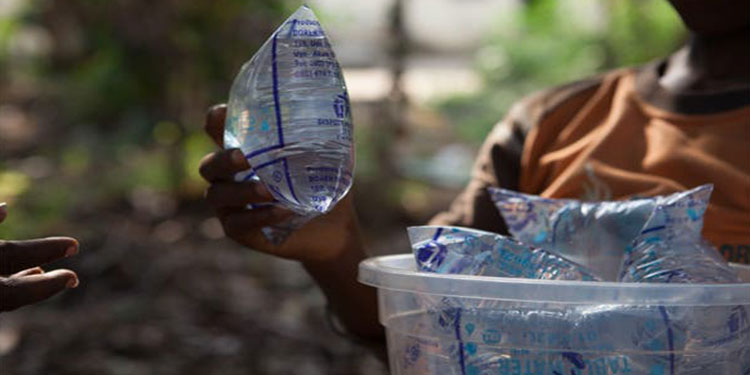
The project is in partnership with Nigerian companies Omnik and RecyclePoints. Project ReflexNG aims to divert approximately 300 million plastic water sachets away from landfill and into recycling facilities, while educating a select group of small to medium-sized waste businesses on sustainability practices at the Lagos Business School Sustainability Centre.
The pilot will also promote the use of recyclates – resins made from recycled plastics – in non-food primary packaging applications.
In Nigeria, as in several other developing countries, there is an informal waste management system. Due to the fact that waste collectors are paid by weight, rigid plastic is favoured and water sachets often disregarded.
Project ReflexNG aims to address this problem with the help of waste management company RecyclePoints, which will employ over 200 registered waste pickers to collect the water sachets and set up kiosks where collected waste can be exchanged by residents for groceries, mobile phone credit and cash.
The collected waste will be taken to Omnik, a plastic products manufacturing company, and processed into post-consumer recyclate. Dow and Omnik will work together to create a useful product from this recyclate. Omnik has also funded a buy-back centre, which will contribute to Nigeria’s long-term waste infrastructure.
Plastic pollution is currently a serious problem in developing countries, with many people in these countries relying on plastic sachets of water in the absence of affordable and readily available drinking water.
The mismanagement of waste at its end of life, particularly plastic, in these countries through dumping or burning not only has a negative environmental impact, it also has a seriously detrimental effect on public health, with one person dying everything 30 seconds as a consequence of poor waste management.
Adwoa Coleman said that Currently, more than 90 per cent of waste generated in Africa is disposed at uncontrolled dumpsites and landfills. Through our partnerships with Nigerian enterprises, academic institutions and local industry associations, we are making significant strides in addressing the crises of plastic waste and proving that the material does have intrinsic value.
Together with our industry partners and in alignment with Nigeria’s vision for plastic waste management, we are creating new opportunities for local business entrepreneurs and their surrounding communities.
Alkesh Thavrani said that Plastic is a man-made solution to a pre-existing problem. Rather than turning it into the problem, we should continue to find sustainable environmentally friendly ways to ensure it continues to serve its purpose as the most affordable and hygienic form of packaging.
Mazi Ukonu of RecyclePoints added saying that The circular economy can only thrive if players at the different stages of the waste recovery value chain run viable activities, especially the waste pickers who are the unsung heroes of waste recycling in frontier markets like ours.
Project ReflexNG aligns with Dow’s sustainability target of enabling the collection, reuse or recycling of one million metric tonnes of plastic by 2030.
